SWAP Activities
SPREP/SWAP/PACWASTE PLUS/JPRISM-II Disaster Waste Management Workshop - Sharing lessons-learnt and experiences on Disaster Waste Management from around the Pacific
Thursday 8th December 2022 – 1pm (Samoa time)
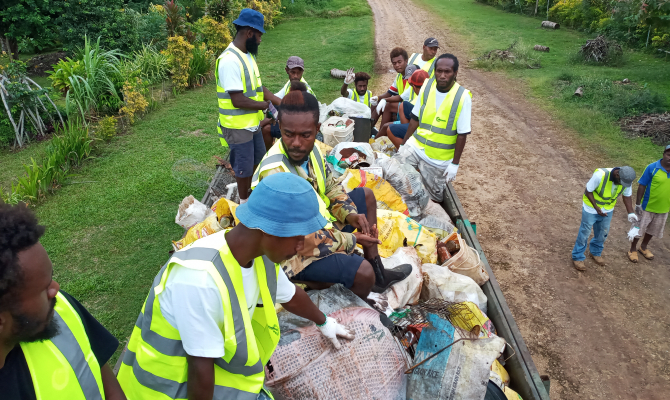
Photo credit: SPREP,
Pacific Islands are particularly vulnerable to the impacts of disaster waste, as natural disasters such as tropical cyclones are becoming more intense and frequent.
According to the latest data from the World Risk Report 2021, three of the ten countries with the highest risk of disaster in the world are in the Pacific region, with Vanuatu at 1st, Solomon Islands at 2nd place and Tonga was considered the third most vulnerable country to disasters. A total of six Pacific islands are included in the top 20 countries most at risk from natural disasters.
To discuss how Pacific Islands (such as Samoa, Tonga and Vanuatu) have coped with managing disaster waste through lessons-learnt and experiences, SPREP, through the SWAP (Committing to Sustainable Waste Actions in the Pacific) project in collaboration with the J-PRISM II project and the PacWaste Plus Programme, plans to conduct a three and half-hour virtual workshop to be held on Thursday 8th December 2022 at 1pm Samoa time.
Marine Litter Pilot Projects
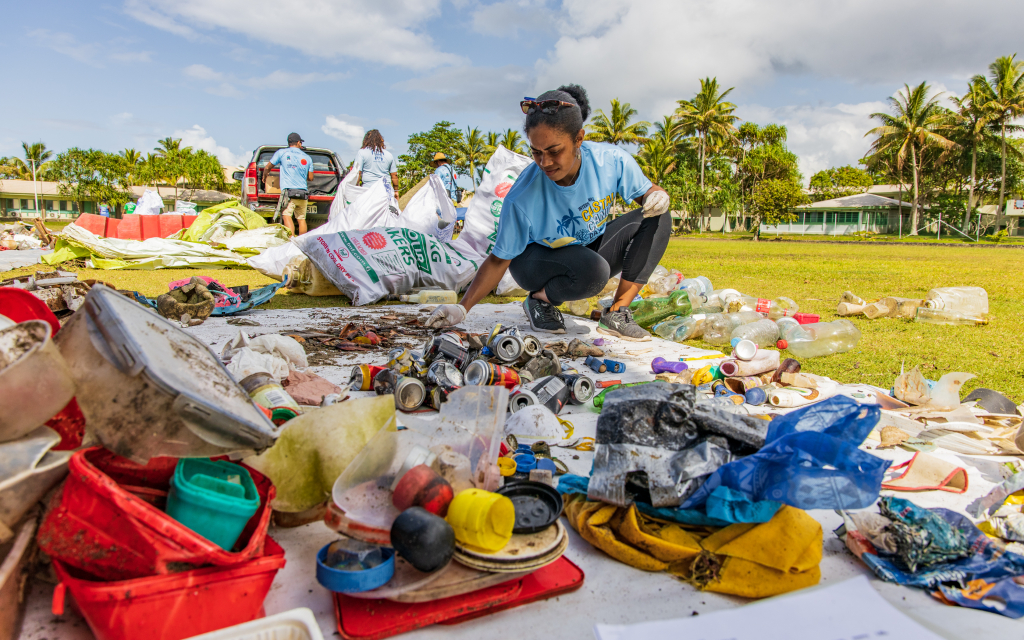
Photo credit: Suva Harbour Foundation
The Committing to Sustainable Waste Actions in the Pacific (SWAP) project is committed to keep Pacific Island Countries (PICs) clean with the goal to reduce pollution and waste in a sustained manner, and create a better sense of community in the surrounding environment. The pilot projects include the Fiji Coastal Litter Project in Fiji, Samoa Marine Litter Pilot Project in Samoa, Honiara Marine Litter Pilot Project in the Solomon Islands, Nuku’alofa Waterfront Clean-Up Campaign in Tonga, and Tackling Marine Litter in Selected Sites in Shefa Province in Vanuatu.
SPREP/SWAP Marine Litter Workshop - Tackling marine litter: from coastal clean-up to decision making
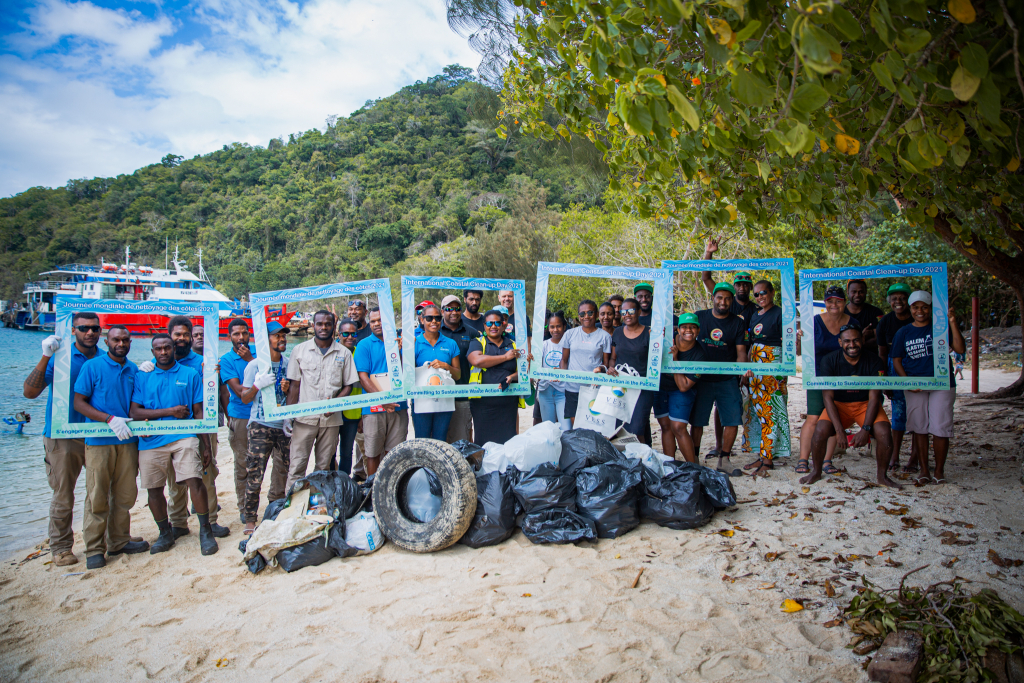
Photo credit: Island Roots
Pacific islands are particularly vulnerable to the impacts of marine litter, due to the particular value and sensitivity of their coastal environments.
To discuss this issue and the tools that can be used in the struggle against this marine litter problem (awareness, clean-ups, audits, etc.), SPREP, through the AFD-Funded SWAP (Committing to Sustainable Waste Actions in the Pacific) project hosted a two-hour virtual meeting in April 2022.
International Coastal Clean-up Day 2021
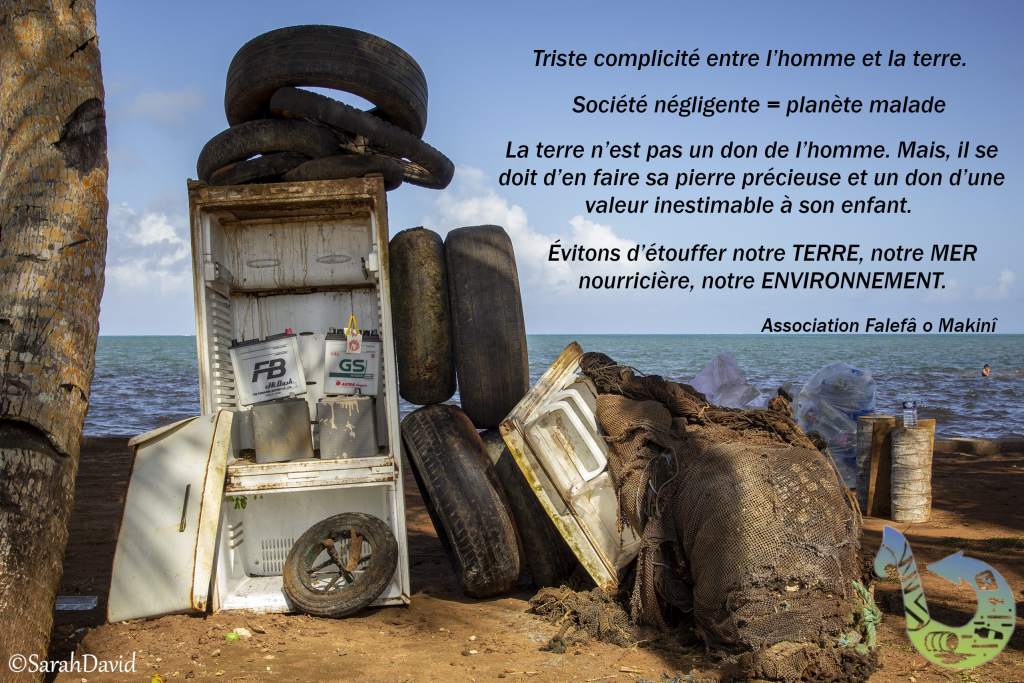
The sad complicity between humans and the earth.
A negligent society = a sick planet
The earth is not a gift from humans. But we must treat it like our precious gem and a priceless gift to our children.
We must stop suffocating our EARTH, our fertile SEA, our ENVIRONMENT.
Photo credit: Sarah David
Marine litter is a global, intergenerational and transboundary issue that negatively affects the environment, people and coastal economies around the world. Working to support our Pacific Islands to ensure a healthy and sustainable environment, SPREP has been engaged in the International Coastal Cleanup Day held on September 18,2021, by supporting ten beach cleanup actions through the SWAP project.
Why used oil processing technologies?
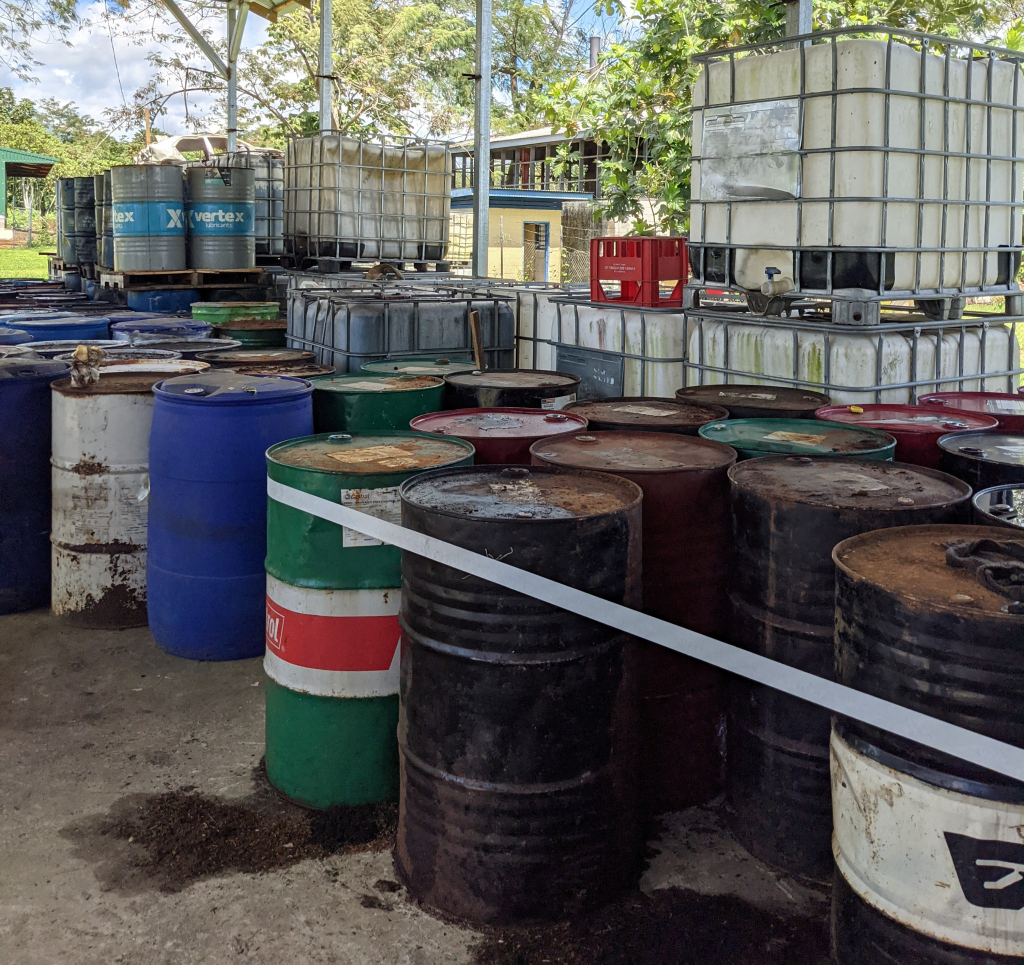
Photo credit: Julie Pillet/SPREP
Used oils are considered dangerous for the environment and humanity. They pollute drinking water, food resources and local aquatic ecosystems such as rivers, lakes and ponds.
Furthermore, as used oils come from using lubricant oils and other hydraulic fluids, toxicity occurs from the range of compounds in oils, which means they need to be stored in a safe manner.
These issues surrounding used oil are especially relevant for Pacific island countries due to their limited access to resources for oil processing and disposal. The Committing to Sustainable Waste Actions in the Pacific (SWAP) project has highlighted used oil as a potentially recoverable waste stream and is working with their member nations, namely Samoa, Solomon Islands, Tonga and Vanuatu, on the development of on-island management of used oil technologies.
Clean Pacific Round Table 2021 - Deep Dive Side Event: Used Oil Management
French territories in the Pacific, namely New Caledonia and Wallis and Futuna, are making good progress in managing used oil which are harmful to human health and the environment.
The progress and how they are turning a problem into a solution was highlighted during a Deep Dive Side Event held on the first day of the Third Clean Pacific Roundtable, from 16 November until 25 November 2021. The event was a chance to provide an overview of used oil management challenges in the Pacific, where the French Territories shared their experiences on the existing legislative, technical and financial tools to address this issue.
The session, delivered in French to highlight the diversity of lessons-learned from all Pacific islands, was moderated by Ms Julie Pillet, Technical Coordinator of the AFD-funded SWAP project, and It featured Ms Ateliana Maugateau, Assistant to the Head of the Territorial Environment Service of Wallis and Futuna, Ms Sandra Sontheimer, Prevention and Waste Management Engineer - Environment Department of the Southern Province - New Caledonia, Mr Bernard Creugnet, Director of the eco-organisation TRECODEC and Mr Thomas Klein, Managing Director of the Company SOCADIS SARL.
The French video recording of this event is available Here.
SWAP Gender Strategy
Gender equality is at the forefront of public debate after the United Nations (UN) set out gender equality and the elimination of inequalities in its 17 Sustainable Development Goals (SDGs) in 2015. The UN states that environmental issues affect women and men differently due to societal norms and gender-differentiated work. In particular, women whose livelihoods depend on agriculture and the use of natural resources are at greater risk from environmental disasters due to insecure land tenure, less access to infrastructure and more time spent on unpaid domestic and care work.
In short, unequal participation in decision-making processes further exacerbates inequalities (UN, 2019, 2020).
Taking into consideration gender equality and social inclusion is a priority for the SWAP Project. As such, the SWAP has developed a Gender Equality and Social Inclusion Strategy and Action Plan which are implemented throughout the project's activities.

